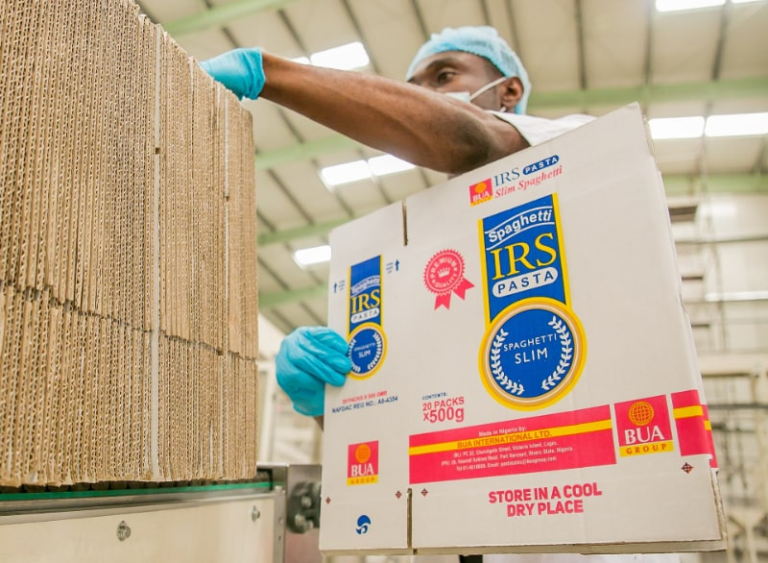In a nation where inflation bites and food remains the people’s greatest necessity, one company has managed not only to endure but to thrive — BUA Foods Plc, the quiet powerhouse redefining Nigeria’s consumer goods landscape.
Barely four years after its formal creation, BUA Foods has grown from a merger experiment into a ₦1.5 trillion-revenue titan, anchoring Nigeria’s march toward food self-sufficiency. Behind the scenes, its strategy is simple yet formidable — control the staples, dominate the market, and feed the nation.
A Merger That Sparked a Movement
What began in 2021 as the union of five BUA Group subsidiaries has turned into one of the most efficient business machines in Africa. Listed on the Nigerian Exchange (NGX) just a year later, the company swiftly established itself as a major industrial player — bridging gaps in the supply of sugar, flour, pasta, rice, and edible oils.
By 2024, the company’s revenue had surged 109% to ₦1.53 trillion, while profits more than doubled to ₦266 billion. That success story continued into 2025, with mid-year earnings already rivaling the previous year’s totals.
The Power of Everyday Essentials
BUA Foods’ dominance lies in its control of Nigeria’s most consumed staples. From sugar and flour to pasta and rice, its factories run round the clock, serving both households and major industries.
The flour division led the charge in 2024 with ₦233.9 billion in sales, more than twice the previous year’s performance. The sugar business, long the company’s foundation, pulled in ₦735.4 billion, while pasta sales crossed ₦541.5 billion — reflecting the brand’s growing grip on Nigerian kitchens.
Meanwhile, its diversification into rice and edible oils turned a small segment into a breakout success, skyrocketing from just ₦2.1 billion in 2023 to ₦16.9 billion in 2024.
Feeding Growth with Strategy
Unlike many competitors, BUA Foods runs on vertical integration — it owns its mills, refineries, and distribution lines, from Lagos to Kano. This structure minimizes supply disruptions and keeps costs under control, even in turbulent times.
Its nationwide logistics network ensures that every bag of flour and every grain of sugar finds its way to both street markets and supermarket shelves — a feat that gives BUA an edge over rivals like Dangote Sugar Refinery, Flour Mills of Nigeria, and Honeywell Flour Mills.
The Numbers Behind the Story
BUA’s financial performance mirrors its operational strength. In 2024, ₦504.8 billion in cash flowed from operations — a clear sign of strong profitability. The company reinvested over ₦31 billion in expansion while rewarding shareholders with record dividends of ₦13 per share, up from ₦5.50 the year before.
Its value-added statement reveals a disciplined approach: ₦203 billion paid in finance costs, ₦18 billion in taxes, and ₦6.17 billion in employee wages — but the largest share, ₦263 billion, was retained for future growth.
Building the Future of Food
At its core, BUA Foods is more than a food manufacturer — it’s an ecosystem built on efficiency and foresight. Its diversification into new product lines, investment in local production, and expansion of plant capacity ensure that its grip on Nigeria’s food sector will only tighten.
With a market capitalization hovering around ₦7.4 trillion, BUA Foods now stands as one of Africa’s most valuable consumer goods giants — a symbol of how consistent focus on the basics can yield extraordinary returns.
In a volatile economy, BUA Foods has discovered a timeless truth:
When you feed a nation, you build an empire.

